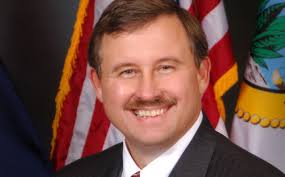Recap of “Horrible Bosses: How to Navigate a Toxic Workplace”
Recap submitted by NCAC Board Members, Kitty Wooley and Whitney Meyerhoeffer
On Tuesday, September 10th, the National Capital Area Chapter of the American Society of Public Administrators held a virtual Drinks and Conversations networking event.
Our Drinks and Conversations events arose out of the pandemic when the Board felt it was a good idea to have an open event where our colleagues in public administration could get together and talk about the issues we were facing in a relaxed environment. These events became a wonderful staple of our programming during the pandemic and have kept going with lively discussions. In the past year, the chapter has begun introducing themed Drinks and Conversations events that propose a topic for the discussion. The spirit of the networking event, where we share our experiences with candor and discuss strategies to handle issues, is still ever-present. If you’ve been to one of our Drinks & Conversations events you know this is a time for us to tip our drinkware and have open discussions about a topic.
This week’s event topic was Horrible Bosses: How to Navigate a Toxic Work Environment.
We’ve all heard stories—or perhaps lived them—of challenging work environments, difficult supervisors, or navigating office politics.
Throughout the 1-hour event, attendees did not just listen; but engaged in an open, honest conversation about their own experiences. The group shared stories, asked questions, and offered each other support and a few strategies to navigate and overcome the obstacles that can make workplaces feel toxic.
We had meaningful and lively discussions and learned from one another’s journeys.
This event is as much about connecting as it is about learning new strategies.
This event was not recorded to be mindful of folks sharing experiences and to create a safe open space for sharing.
A member recounted how productivity in his situation ground to a halt under toxic leadership. Several other members shared strategies they used to try and effect change, some still trying to make changes even as they were exiting the job.
Questions arose about why these people do these things.
- They have personal agendas.
- Something is going on in their lives.
- They have some sort of lack of self-esteem, lack of confidence, or they are intimidated by something.
- Other reasons
There were also a few books mentioned relative to discussions about leadership, and how to a) be a successful leader and b) how to give and receive feedback to help improve yourself and others in the workplace.
Out of these discussions, as is often the case, other topics for future Drinks and Conversations events were proposed. One that we all agreed would be good to have soon is how to create a safe space for feedback (Thank you, Belva Martin!)
The main takeaways from the event and the most important bullet points the group wanted to make sure everyone knew:
- You are not suffering alone. It can feel very lonely and helpless in a toxic workplace. But always know, you are not alone in your struggle. There are others out there on similar journeys and it is essential that you know you aren’t alone and you don’t have to do this alone.
- It is important to find allies inside or outside of work. Find a trusted colleague at work or attend a networking event outside of work to find allies. Having a person to lean on, to talk to, or to vent and take a walk with is important to helping you get through this challenging time. The mental work it takes to manage difficult situations is taxing and giving ourselves the grace and space to process is important.
- Sometimes leaving has its own impact. While not always the case, choosing to leave your job can be a signal to higher-ups that there is an issue. Strategies such as mentioning to a higher-up leader that the reason you are leaving is because of a toxic situation can have an impact. Other times you can make HR aware that there is a reason why you are leaving. But even if you just leave and say nothing, there is an impact.
- Sometimes you learn more from the horrible manager. You learn who you are as a leader or what you are looking for in a company culture. You know the signs of a toxic workplace and can look for them in the future. You also are learning how you do not want to be treated, which in turn helps you be a better leader in the future.
- Organizations and businesses with bad leadership are not sustainable. Over time, poor leadership affects productivity, creativity, and teamwork.
It was a great discussion and a helpful event with support and compassion.
Look for our next Drinks and Conversations event with the topic of creating safe spaces for feedback in the workplace.






